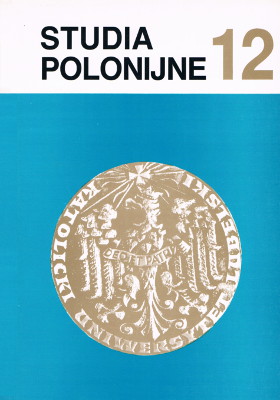Polish Private General Education in the Republic of Lithuania in the Years 1926-1939
Main Article Content
Abstract
Both the history and the present situation of the Polish people living within the borders of the former independent Republic of Lithuania belong to the least known problems in the sphere of researches into Polish people abroad. Due to the lack of contemporary studies, the present paper is based on newspapers and books covering the interwar period, and on introductory querenda carried out in archives. Conclusions presented here are concerned with the number of Poles in Lithuania; they consisted 9,9% of the population in the beginning of the 20s. The development and evolution of Polish private education is characterized here with a special regard to the short period under the folk-sociodemocratic regime. The paper discusses the problems of the teaching staff and also the organizational and financial background, thanks to which the educative system could function.
The complicated history of the Polish minority living on the territory of independent Lithuania was an outcome of both the previous relations between Polish and Lithuanian statehood, and of contemporary relations. The Poles who had settled there in the past and polonized groups of Lithuanians who belonged to different social strata tended in a natural way towards the Polish statehood, since they saw in it the defender of their own laws. Lithuanian standpoint, however, was different. It tried to take advantage of the restered after years statehood in order to strengthen as soon as possible the influence of Lithuanian culture. It led inevitably to a conflict with Polishness, and, first of all, with those institutions which supported it among the young generation.
The present Polish national minority is divided into two groups: „the old” composed of the former citizens of Lithuanian Republic and their descendants, and „the new” composed of the Poles who live on the eastern territories of II Republic. The latter group, and that being an exception it the USSR, may take advantage of, among other things, schools with the Polish language, „Czerwony Sztandar” (Red Banner) daily, or radio broadcast. Sometimes, there are studies in Polish and translations from Lithuanian and Russian in official Lithuanian publications. We barely know the present day. We may wish ourselves, then, that both the history of the Poles in Lithuania, and the present day will be better examined.

